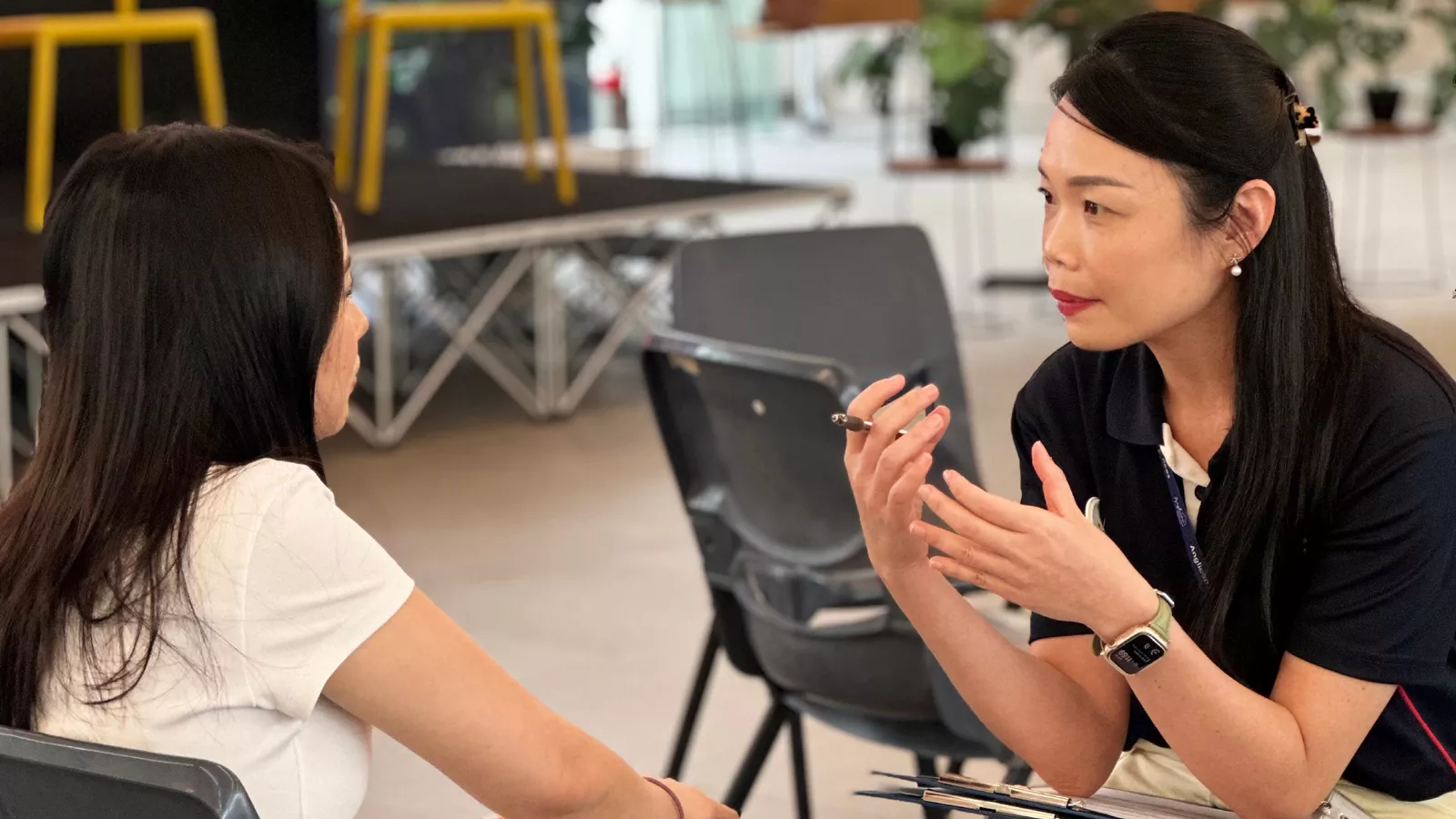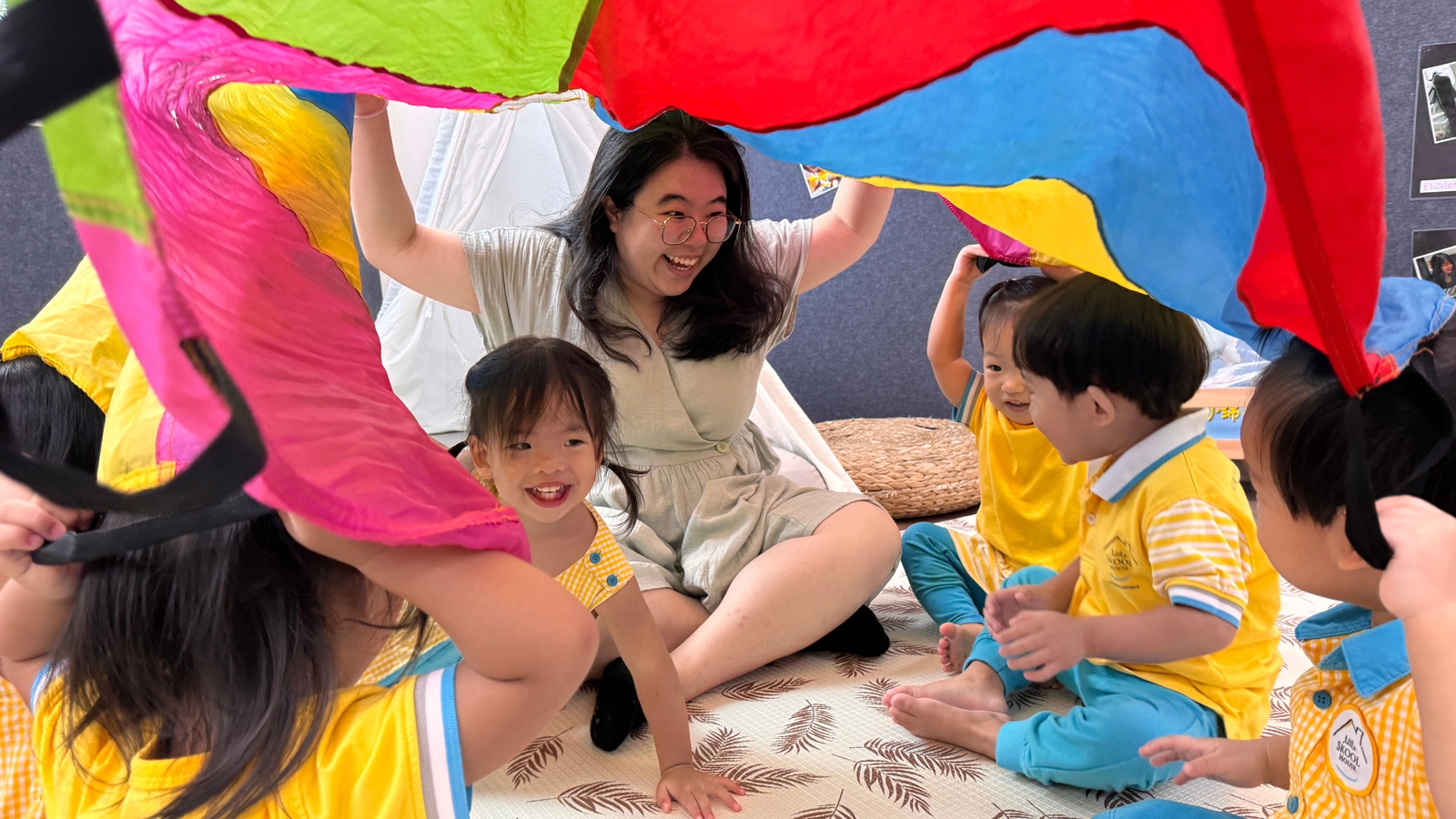ABOUT OUR EXPERT

NG SHU PING
Ms Ng is an ECDA Fellow and Deputy Director (Human Resource) at Anglican Preschool Services. With 20 years of experience in the early childhood (EC) sector, she is equally passionate about nurturing not only young children but also the educators around her.
By Ms Ng Shu Ping
I did not begin my career in early childhood. In 2001, I graduated from university with a business degree and entered the world of marketing, branding and advertising. Despite enjoying myself, deep down I had this quiet, persistent calling to work with children.
The idea of being part of their early education, shaping their sense of self and belonging, and making a difference in young lives sounded amazing. However, I assumed — wrongly, as it turned out — that there weren't many good job prospects in the EC sector, so I put that dream aside.
A few years into my corporate career, my brother passed away suddenly. The sense of loss and soul-searching that followed caused a profound shift in mindset. I longed for a life filled with more meaning and purpose. That was when my inner voice re-emerged, stronger this time, drawing me to EC education.
I wanted to be a teacher who would make every child feel seen, heard and valued, especially those who were quiet, less confident or overlooked. I wanted children to know I believed in them, and to help parents see and celebrate their children’s unique strengths.
SWITCHING AND PROGRESSING
Coming from a marketing background, the preschool environment was an eye-opener for me. The physical demands of being a pre-nursery teacher — constantly on my feet — were so different from the desk-bound role I was used to. But what surprised me even more was how mentally stimulating the work turned out to be.
 Working with children keeps preschool educators on their toes, physically and mentally.
Working with children keeps preschool educators on their toes, physically and mentally.
I quickly realised that children learn in unique and often unpredictable ways. To spark meaningful learning, I had to tune in closely to each child’s cues and design the environment with intentionality. This meant unlearning and relearning, constantly stepping into their shoes and asking myself, “What would truly engage this child?”. Each day called for creativity, presence and deep emotional labour.
As I transitioned into the role of centre principal, and later, director of pedagogy, it pushed me to uphold the same strong image of the educator as I held for the child. If I celebrated every child's uniqueness, I needed to do the same for my team. This meant giving space for educators’ voices, valuing their input, and supporting their efforts towards continuous improvement.
A NURTURING FIGURE FOR CHILDREN
When reflecting on the image of a teacher, a 1980s study led by psychologist Benjamin Bloom springs to mind. Bloom had researched world-class musicians and athletes, and what stood out was how these pianists and tennis players described their first teachers.
The research participants remembered their first piano teachers and tennis coaches as being caring and patient. They made music and sport fun, sparking a love for learning. The implication: As educators, it's not always about how skilled or knowledgeable we are.
 In her current HR role, Ms Ng (right) often meets aspiring educators at career fairs and talks to them about both the challenges and rewards of the job.
In her current HR role, Ms Ng (right) often meets aspiring educators at career fairs and talks to them about both the challenges and rewards of the job.
Having EC skills and knowledge is, of course, essential. But sometimes, what matters is simply showing kindness and encouragement to children. Small, thoughtful actions — like noticing the tiniest details about a child, or creating a safe space where families feel comfortable sharing their joys and worries — can have a positive impact on children’s holistic development, even if the results are not immediately apparent.
UPHOLDING THE IMAGE OF EC PROFESSIONALS
Throughout my EC journey, I've had the privilege of working with mentors and colleagues who recognised my potential and invested in my professional development. They viewed my career through a strengths-based lens, just as we aspire to do for children.
This approach offers a vision of a workplace our children will one day step into — one where each individual is valued for their unique talents. Excellence doesn’t look the same in all of us. By nurturing the well-being and fulfilment of educators today, we are shaping the healthy, inspiring workplaces of tomorrow.








